Introduction
Hades, developed by Supergiant Games, has captured the hearts of gamers worldwide with its unique blend of Greek mythology and roguelike gameplay. Since its release, it has garnered immense popularity and critical acclaim due to its captivating narrative. In this Article we will unravel its story and ultimately hades game explained.
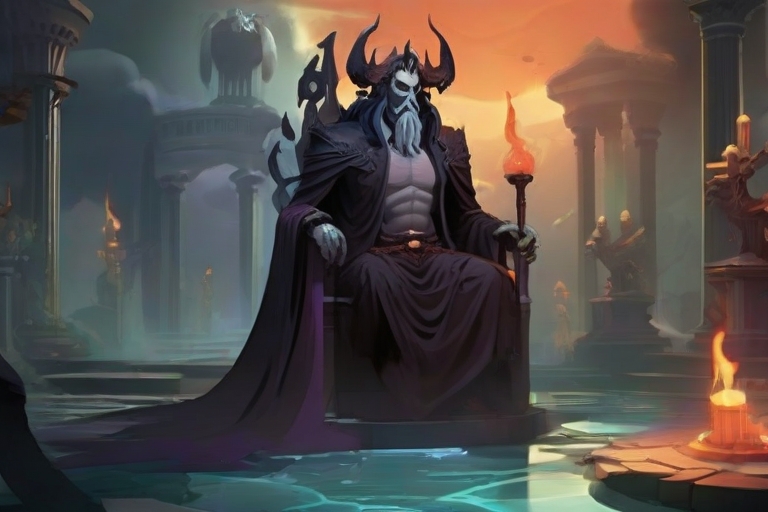
Table of Contents
What is Hades?
“Hades” is an acclaimed action role-playing game developed by Supergiant Games, best known for their previous titles like “Bastion” and “Transistor.” Released in 2020, “Hades” has quickly gained popularity and critical acclaim for its innovative approach to the roguelike genre and its unique narrative style.
Set in the rich, mythological world of Ancient Greece, “Hades” places players in the role of Zagreus, the son of the Greek god of the dead, Hades. Zagreus seeks to escape the Underworld to reach Mount Olympus, challenging the might of his father and other Olympian gods and in the process hades game explained.
The game combines fast-paced, fluid combat with a dynamic storytelling approach as hades game explained itself. Each run through the game’s ever-changing levels reveals more of the story, characters, and the world. The player encounters various gods, heroes, and mythical beings from Greek mythology, each offering unique powers and abilities to aid Zagreus in his quest.
The game’s core loop involves navigating through various levels of the Underworld, each with its unique set of challenges and enemies. Combat is a crucial element, requiring players to master a variety of weapons and skills. Upon death, Zagreus is resurrected back at the start, allowing players to use their accumulated knowledge and upgrades to advance further in their next attempt.
As the hades game explained, Overall, “Hades” has been celebrated for its innovative combination of roguelike gameplay mechanics, engaging narrative, and its fresh take on Greek mythology, setting a new benchmark in the indie gaming scene.
Hades Game Explained; The Storyline
The Plot of hades game explained itself as players follow the story of Zagreus, the rebellious son of the Greek god Hades. Zagreus, dissatisfied with his life in the Underworld, decides to escape to Mount Olympus, seeking answers and a different destiny.
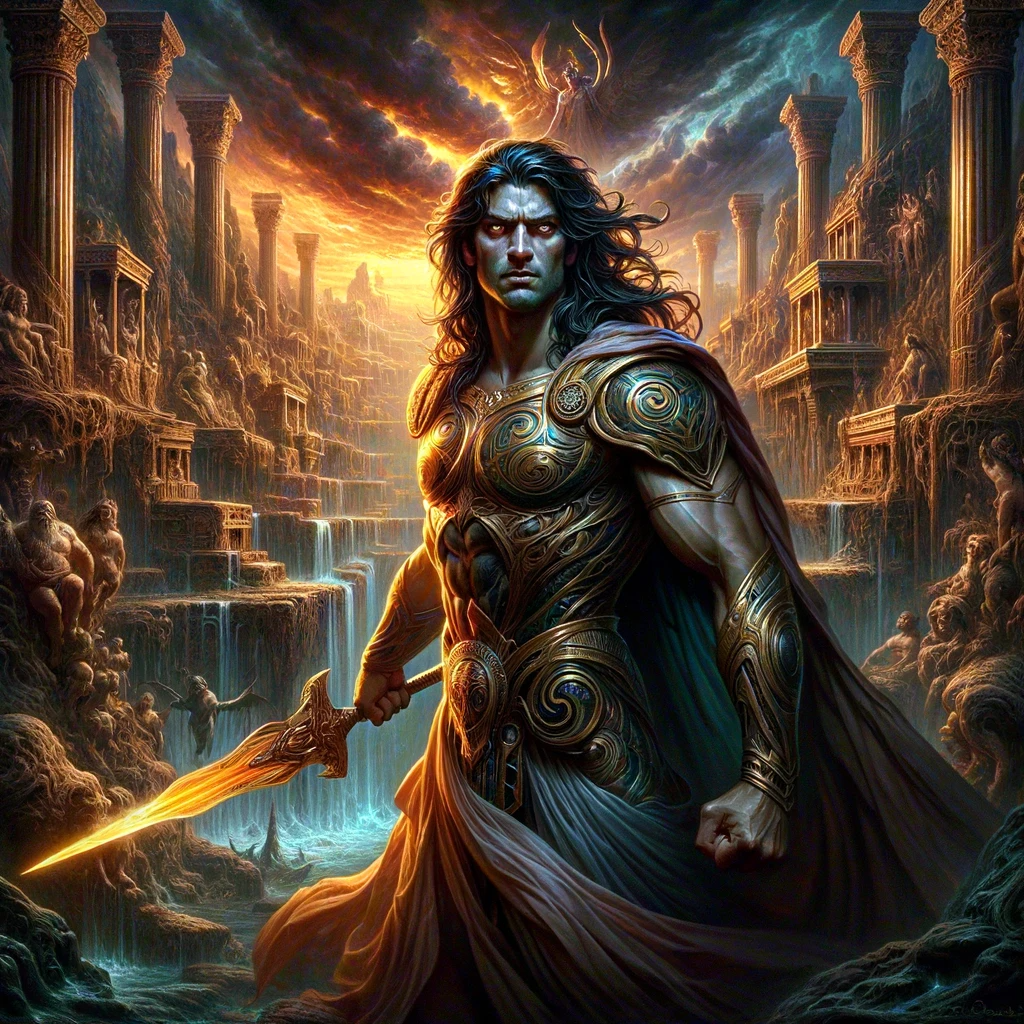
The hades game explained as the storyline unfolds through a series of attempts by Zagreus to break free from the Underworld, a place comprised of various realms each guarded by formidable bosses. Throughout his journey, Zagreus encounters and interacts with a host of characters from Greek mythology. These include Olympian gods like Zeus, Athena, and Poseidon, who provide him with gifts, or “Boons,” enhancing his abilities and aiding his escape.
Zagreus also meets other mythological figures, such as Achilles, Orpheus, and Sisyphus, each with their own backstories and connections to the world of the game. These characters offer insights into Zagreus’s life and the dynamics of his family, deepening the game’s narrative.
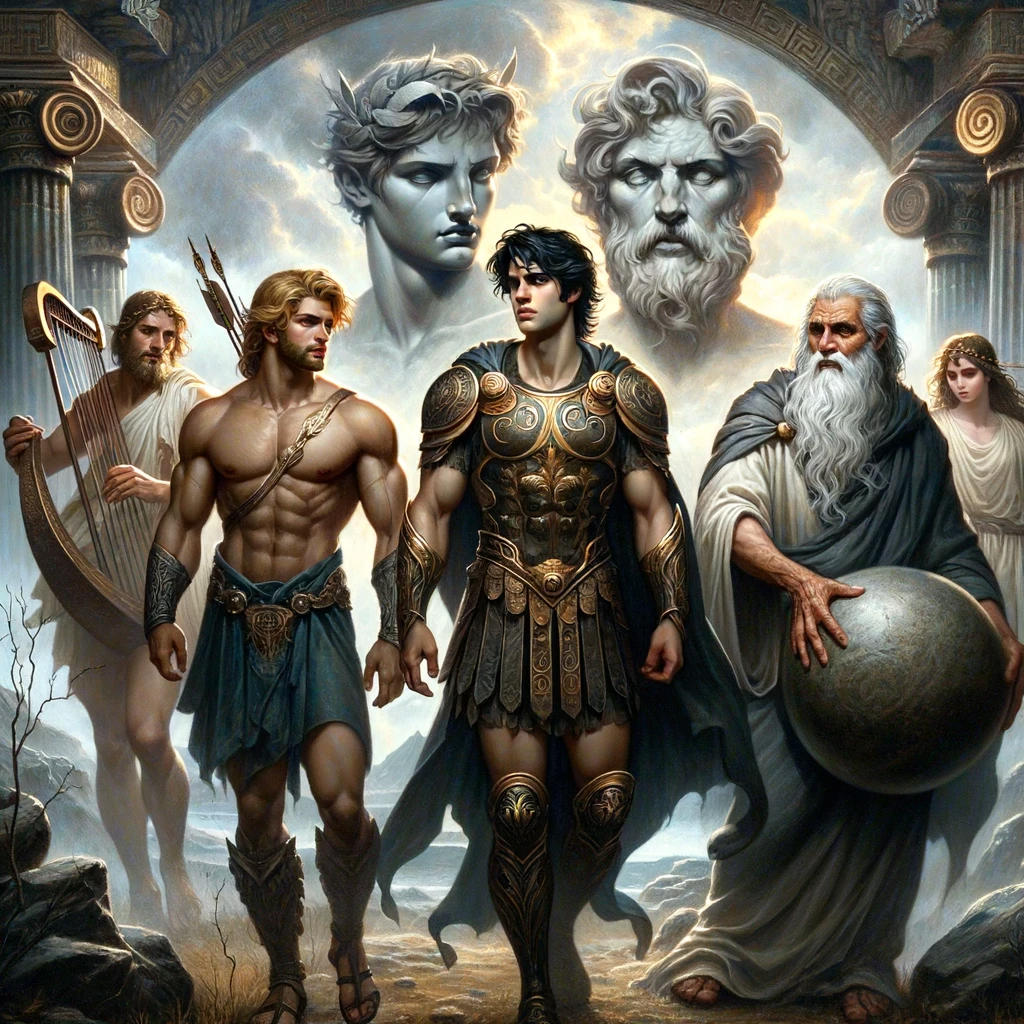
The central conflict in the story if hades game explained shortly is Zagreus’s relationship with his father, Hades. Each escape attempt ends in a confrontation with Hades, revealing more about their complicated father-son relationship. As Zagreus progresses, he uncovers secrets about his past, his family, and the reasons behind his confinement in the Underworld.
The game’s narrative is non-linear and heavily influenced by the player’s progress. Each run provides pieces of the story, encouraging players to continue their attempts to escape, not only for gameplay progression but also to unravel the full story of Zagreus and his quest for freedom and identity. The storytelling is dynamic, with dialogue and events changing based on the player’s choices and achievements.
Overall, “Hades” combines action-packed gameplay with a rich, character-driven story, reimagining Greek mythology in a unique and engaging way.
Gameplay Mechanics
“Hades” features gameplay mechanics typical of the roguelike genre, with unique twists:
- Combat: The player controls Zagreus in fast-paced, real-time combat, using a combination of melee attacks, dashes, and special abilities. The combat is fluid, requiring strategic use of skills and reflexes to defeat enemies.
- Weapons and Abilities: Zagreus has access to a variety of mythical weapons, each with unique abilities and playstyles. During each run, players can acquire Boons from Olympian gods, offering powerful upgrades and modifications to Zagreus’s abilities.
- Randomization: Levels in the Underworld are procedurally generated, ensuring each run is different. This randomization extends to enemy placements, room layouts, and available upgrades, creating a fresh experience every time.
- Death and Progression: Death is a fundamental part of “Hades.” When Zagreus dies, he is resurrected back at the start, but with some progression elements retained, such as certain upgrades or currency. This allows for a gradual strengthening of the character across multiple runs.
- Narrative Integration: Unlike many roguelikes, “Hades” integrates its story into the gameplay loop. Each run reveals more about the characters and world, with story elements adapting to the player’s progress and choices.
Overall, Hades game explained by combines challenges, dynamic combat with strategic progression and a deep narrative, creating a compelling and replayable gameplay experience.
Graphics and Sound
The art style of Hades is distinct and captivating as the hades game explained itself with vibrant colors and intricate designs. The soundtrack and sound effects further immerse players in the mythological world.
Critical Reception
“Hades” received widespread critical acclaim upon its release. Critics praised its innovative blend of roguelike mechanics with a deep, character-driven narrative. The game was lauded for its fast-paced, satisfying combat, and the way it seamlessly integrated story elements with gameplay. The art style, voice acting, and music were also highlighted as standout features. “Hades” won numerous awards, including several Game of the Year accolades, and was celebrated for its fresh approach to the roguelike genre and its compelling interpretation of Greek mythology. The game’s commercial success and positive reception from both critics and players cemented its status as a landmark title in indie gaming. In short, it is praised for its innovative gameplay and storytelling. Both players and critics have lauded its design and execution.
Comparison with Other Roguelike Games
“Hades” distinguishes itself from other roguelike games through its unique narrative integration and character development. Unlike many roguelikes that focus primarily on gameplay mechanics, “Hades” weaves an engaging story with each run, making the narrative a central part of the experience. Its art style and voice acting also set it apart, offering a more immersive and visually rich experience. In terms of gameplay, “Hades” maintains the genre’s hallmark of challenging, procedurally generated levels but adds its own flair with a wide variety of weapons, abilities, and upgrades that encourage diverse playstyles. These features, combined with its innovative approach to death and progression, make “Hades” a standout in the roguelike genre.
Community and Modding
“Hades” has cultivated a passionate and active community, with fans deeply engaged in discussions, fan art, and sharing strategies. This community thrives on platforms like Reddit, Discord, and various social media. Additionally, while “Hades” doesn’t officially support modding, its popularity has inspired a modest modding scene. Enthusiasts have created custom modifications, adding new features or tweaking gameplay, though these mods are more limited compared to games with official modding support. The game’s vibrant community and the budding modding activities contribute significantly to its ongoing popularity and replayability.
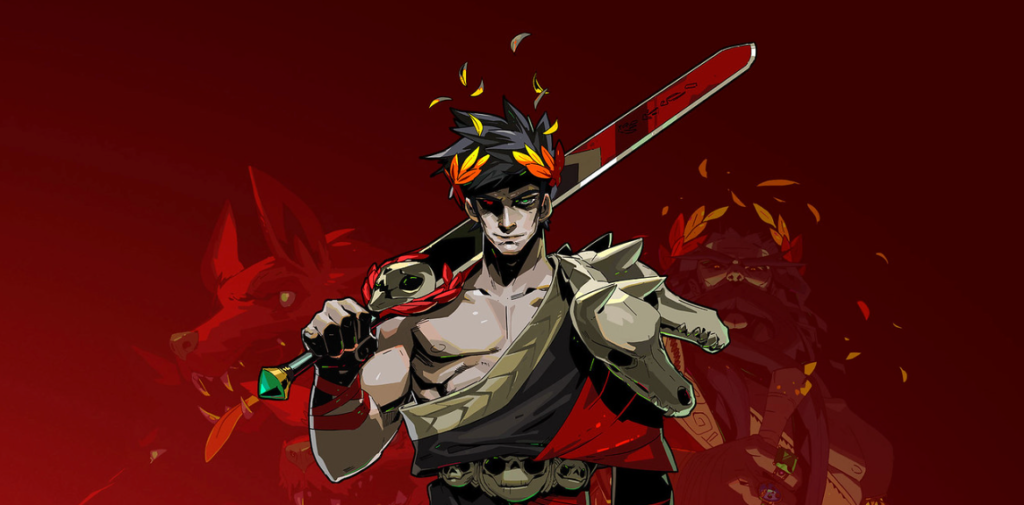
Impact on Gaming Culture
“Hades” has made a significant impact on gaming culture, particularly in how it blends narrative with roguelike gameplay. Its success has shown that story-driven elements can effectively complement the traditionally gameplay-focused roguelike genre. The game’s art style, character development, and voice acting have set new standards for indie games, inspiring developers to explore more creative and narrative-rich approaches. Additionally, “Hades” has contributed to the broader acceptance and popularity of roguelikes, attracting players who might not typically enjoy the genre. Its influence is seen in the growing number of games that seek to combine deep storytelling with challenging, replayable gameplay mechanics..
Challenges and Strategy
For newcomers, mastering Hades can be challenging. The article offers beginner tips and delves into advanced strategies for experienced players.
Challenges and Strategy in “Hades”:
- Adapting to Randomization: Each run in “Hades” is unique due to the procedurally generated levels and random boon offerings. Players must adapt their strategies based on the weapons and abilities available in each run.
- Mastering Combat: The game’s combat is fast-paced and requires quick reflexes. Understanding the attack patterns of enemies and learning to dodge effectively are crucial skills.
- Resource Management: Managing resources like health, currency, and boons is vital. Players must decide when to spend resources on upgrades or save them for future encounters.
- Boss Battles: Bosses in “Hades” are challenging and require specific strategies to defeat. Learning their attack patterns and weaknesses is key.
Tips for Players:
- Experiment with Weapons: Each weapon in “Hades” offers a different playstyle. Experimenting with all of them can help players find what suits them best.
- Utilize Boons Wisely: Choose boons that complement your playstyle and weapon choice. Synergizing boons with your weapon can significantly boost your effectiveness.
- Practice Makes Perfect: Don’t be discouraged by death. Each run provides valuable experience and knowledge, which are essential for progressing further.
- Take Advantage of the Mirror of Night: Use Darkness to upgrade abilities in the Mirror of Night in Zagreus’s room. These upgrades can significantly impact your ability to progress further in runs.
- Learn Enemy Patterns: Pay attention to the attack patterns of enemies and bosses. Anticipating and countering their moves is crucial for survival.
By embracing these challenges and strategies, and with practice and patience, players can progressively improve their skills and delve deeper into the rich world of “Hades.”
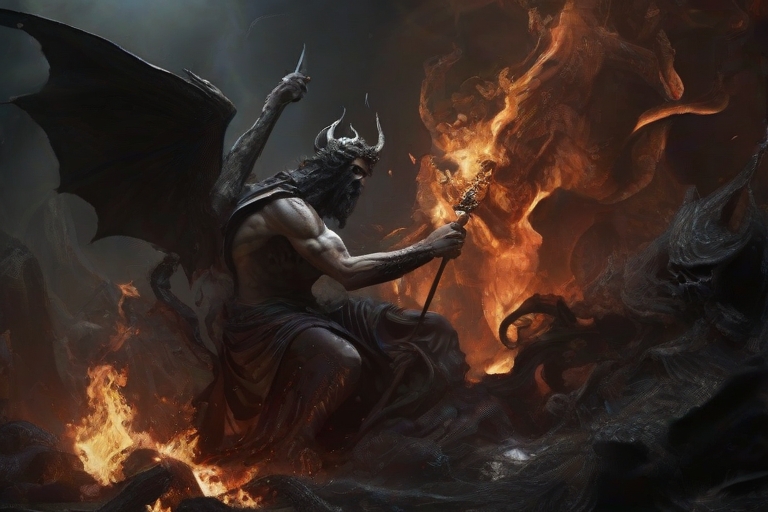
Future of Hades
The future of “Hades” is a topic of much speculation among fans. While there has been no official announcement from Supergiant Games regarding a direct sequel or major expansions, the game’s significant success and popularity suggest potential for future developments. The developers might explore additional content updates, story extensions, or even a new game set in the same universe. Given the rich mythology and the strong foundation laid by “Hades,” the possibilities for expanding its universe are vast, keeping the community excited about what might come next.
Conclusion
Hades is more than just a game; it’s a groundbreaking experience that combines gripping storytelling with dynamic gameplay. Its impact on the roguelike genre and gaming culture at large is undeniable.”Hades” stands as a groundbreaking title in the indie gaming world, masterfully blending intense roguelike mechanics with a compelling narrative set in Greek mythology. Its innovative approach to storytelling, engaging combat, and stunning art style have earned it widespread acclaim. The game not only captivated players and critics alike but also influenced the broader gaming culture, demonstrating the potential for narrative depth in roguelike games. With its lasting impact and a dedicated fanbase, “Hades” remains a shining example of how video games can artfully merge story and gameplay.
You might want to check our Article : Heroes of Might and Magic 5 Necromancer Campaign: Tips and Tricks to Master the Dark Arts
FAQs
- What makes Hades different from other roguelikes?
- Hades combines narrative and gameplay in a unique way, setting it apart.
- Can you mod Hades?
- Yes, the game has modding capabilities, enhancing its replay value.
- Is Hades suitable for beginners to the roguelike genre?
- Absolutely, its design caters to both beginners and veterans.
- Will there be a sequel to Hades?
- While not confirmed, the possibility of a sequel excites many fans.
- What are some essential tips for new players?
- Understanding weapon mechanics and learning enemy patterns are key.

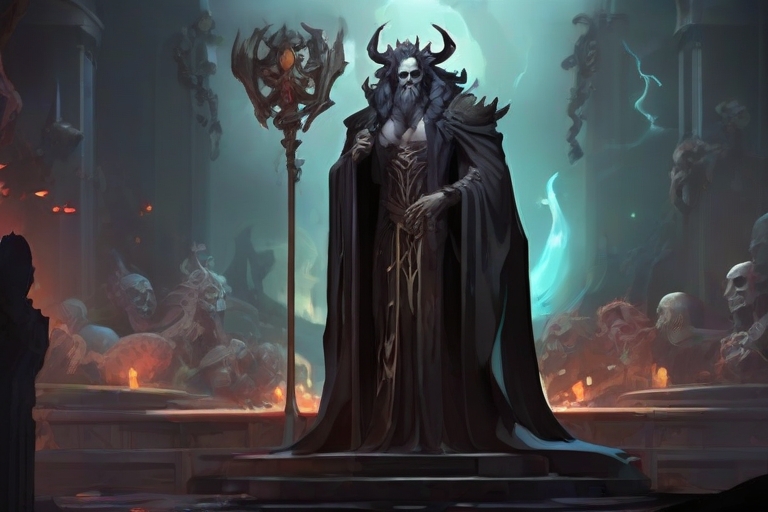
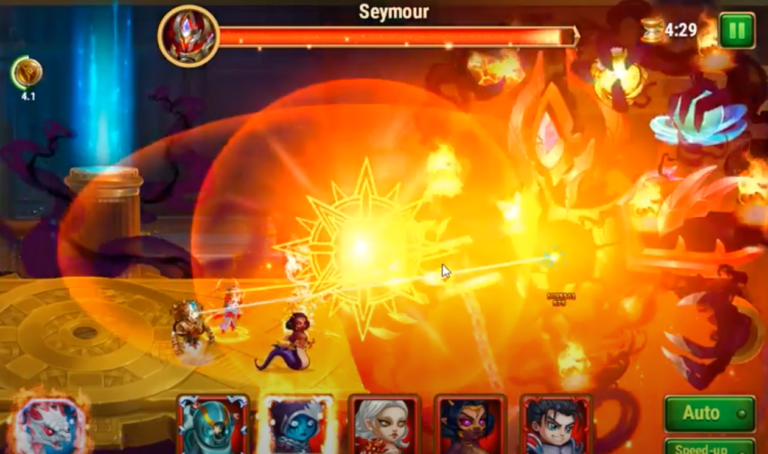


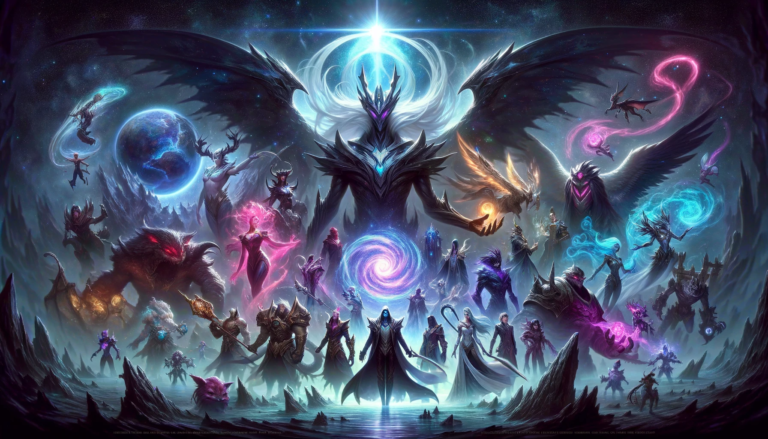

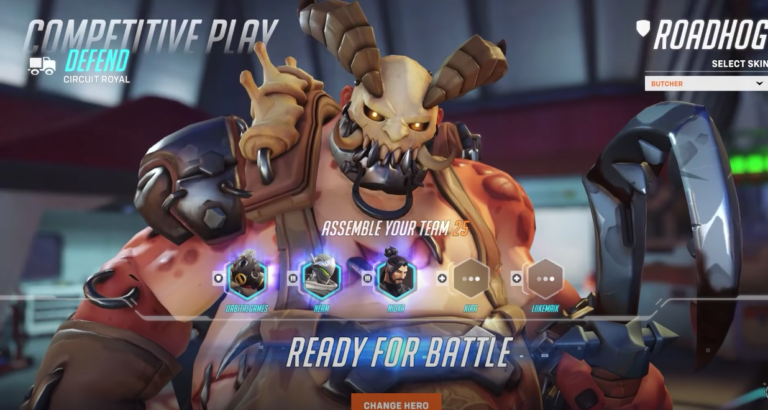
2 Comments